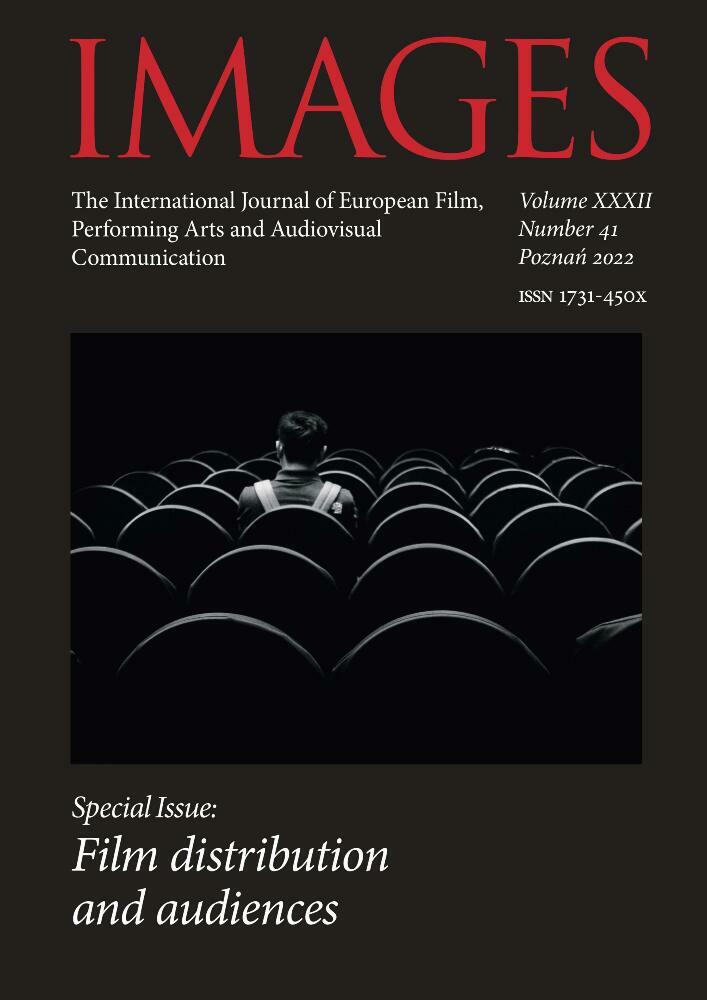Abstract
The subject of this article is an analysis of the distribution, attendance results and reception of feature films made by the Profil Film Unit in 1982–1989. The Profil Film Unit was the second film group (alongside Iluzjon, headed by Czesław Petelski) to be reactivated by the cinematography management after martial law was declared in Poland. The artistic director of Profil, Bohdan Poręba, enjoyed the trust and support of the Party authorities, linking his allegiance to communist dogma to his activity in the nationalist ‘Grunwald’ Patriotic Association. Profil’s productions were boycotted by a large part of the acting community (also due to an appeal by the Solidarity Stage and Film Artists published in the newspaper “Tygodnik Mazowsze”), and some of the films made by this unit in the 1980s clearly followed the guidelines of the cultural policy of the Polish United Workers’ Party. The following questions will be answered: How did the political circumstances outlined above affect the distribution and reception of the films made by Profil? What attendance results did the films produced by Profil achieve and to what extent did they differ from the cinema ticket revenues of the films produced by other groups? How was the activity of the Profil Film Unit and the financial results achieved evaluated by the Supreme Board of Film Affairs? How were the productions of Profil received by film critics in the daily press and magazines?
Funding
National Science Centre
References
(leg), Czas nadziei – czas refleksji, “Sztandar Ludu” 1987, no. 55
Czabański T., Katastrofa w Gibraltarze, “Dziennik Ludowy” 1984, no. 22
Dajbor R., Jak u Barei, czyli kto to powiedział, Warszawa 2019
Dipont M., Godność, “Życie Warszawy” 1984, no. 265
Dolińska E., Przesłanie, “Film” 1984, no. 49
Dolińska E., W Korczynie i Bohatyrowiczach, “Film” 1987, no. 5, p. 9
Duraczyński E., Kowalski W., Lubimy przegranych?, interviewed by K. Kreutzinger, C. Dondziłło, „Film” 1984, no. 51
Gasztołd-Seń P., Towarzysze z betonu. Dogmatyzm w PZPR 1980–1990, Warszawa 2019
Górnicka R., Duchy i komputery, “Film” 1987, no. 32
Grodzka E., Szansa przetrwania, “Tygodnik Kulturalny” 1986, no. 30
Grzechowiak J., “Przed burzą” – koniec lat trzydziestych według Ryszarda Frelka i Włodzimierza Tadeusza Kowalskiego, [in:] Wrzesień 1939. Filmowe teksty i konteksty, eds. B. Giza, T. Lubelski, Warszawa 2021, pp. 279–305
Horoszczak A., Heroism Ordinary, “Perspektywy” 1986, no. 19
Kałużyński Z., Śmierć generała, “Polityka” 1984, no. 40
Karbowiak M., Godność, “Głos Robotniczy” 1984, no. 272
Kaźmierczak B., Równanie w dół, “Ekran” 1987, no. 28
Klaczyński Z., Dramat w Gibraltarze, “Trybuna Ludu” 1984, no. 213
Klecel M., Jan Dobraczyński – wielki pisarz, wielkie uwikłanie, “Biuletyn IPN” 2007, no. 8–9
Kunicki M., ‘Optimism against All Odds’: Polish National Identity in War Films of Jerzy Passendorfer, “Sprawy Narodowościowe” 2017, no. 49 https://doi.org/10.11649/sn.1343 DOI: https://doi.org/10.11649/sn.1343
Kunicki M., Poland’s Wild West and East: Polish Westerns of the 1960s, [in:] Popular Cinemas in Central Europe: Film Cultures and Histories, eds. D. Ostrowska, Z. Varga, F. Pitassio, London – New York 2017, pp. 157–172 https://doi.org/10.5040/9781350987562.ch-008 DOI: https://doi.org/10.5040/9781350987562.ch-008
Maniewski M., Mezalians, “Kino” 1987, no. 4, p. 14
Malatyńska M., Katastrofa w Gibraltarze, “Echo Krakowa” 1984, no. 202 Mały Rocznik Filmowy 1984, Warszawa 1986
Mały Rocznik Filmowy 1985, Warszawa 1986
Miazga Z., W cieniu nienawiści, “Sztandar Ludu” 1986, no. 131
Modrzejewska E., Ryfka ocalona, “Film” 1986, no. 19
Pawlicki M., My lubim sielanki, “Tygodnik Kulturalny” 1987, no. 17
Protest polskiego MSZ w związku z wyświetlaniem francuskiego filmu “Shoah”, “Film” 1985, no. 21
Rutkiewicz W., Zobaczcie koniecznie!, “Gazeta Krakowska” 1984, no. 274
Sadowski M., Strachy w pałacu, “Rzeczpospolita” 1987, no. 142
Skwara J., Coś z życia, “Argumenty” 1987, no. 12
Skwara J., W stronę polityki, “Argumenty” 1985, no. 26
Smagowski J., Nie patrzę przez szybę. Rozmowa z Jerzym Grzymkowskim, “Film” 1984, no. 7
Smogorzewski P., In the name of neighbourly love, “Słowo Powszechne” 1986, no. 80
Sobolewski T., Czas nadziei, “Tygodnik Powszechny” 1987, no. 10
Solidarność artystów sceny i filmu w.s. bojkotu, “Tygodnik Mazowsze” 1983, no. 40
Szyma T., Godność, “Tygodnik Powszechny” 1985, no. 5
Szyma T., Nad Niemnem, “Tygodnik Powszechny” 1987, no. 8
Terlecki O., Jak kura na pieprzu, “Życie Literackie” 1982, no. 44
Terlecki O., Katastrofa w Gibraltarze, “Życie Literackie” 1984, no. 41
Toeplitz K.T., Parodia, “Polityka” 1986, no. 20
Wągiel P., Wisłą do Niemna, “Rzeczywistość” 1987, no. 7
Winiarczyk M., Moralny egzamin, “Ekran” 1986, no. 20
Wiśniewski Z., Zagrożenie, strach, bohaterstwo, “Trybuna Ludu” 1986, no. 120
Z tajnych archiwów. Gil, Krzywobłocka, Poręba: Wyrażamy głęboki niepokój o dalszy rozwój socjalistycznej kultury polskie, “Polityka” 1993, no. 35
Zatorski J., Dostojny komiks, “Kierunki” 1984, no. 47
Zwierzchowski P., Kino nowej pamięci. Obraz II wojny światowej w kinie polskim, Bydgoszcz 2013
License
Copyright (c) 2023 Jarosław Grzechowiak

This work is licensed under a Creative Commons Attribution 4.0 International License.

